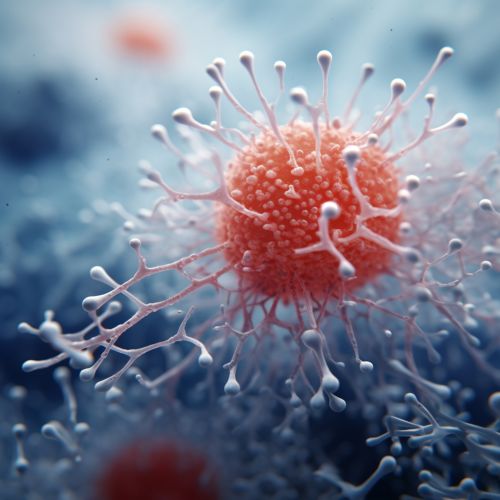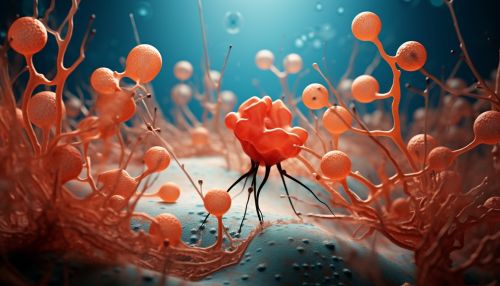Dendritic cell
Introduction
Dendritic cells (DCs) are a type of antigen-presenting cells (APCs) that have a unique capacity to induce primary immune responses. They are named for their probing, 'tree-like' or dendritic shapes. They are derived from bone marrow precursors and are found in peripheral and lymphoid tissues.
Characteristics
Dendritic cells are characterized by their high efficiency in presenting antigens to T cells, which is crucial for the initiation of the adaptive immune response. They are also characterized by their ability to capture, process, and present antigens. They have a unique ability to stimulate naive T cells, which distinguishes them from other antigen-presenting cells.
Types of Dendritic Cells
There are several types of dendritic cells, each with distinct functions and phenotypes. These include plasmacytoid dendritic cells (pDCs), conventional or classical dendritic cells (cDCs), and monocyte-derived dendritic cells (moDCs).
Plasmacytoid Dendritic Cells
Plasmacytoid dendritic cells (pDCs) are a unique subset of dendritic cells that produce large amounts of type I interferon in response to viral infections. They are also involved in the pathogenesis of autoimmune diseases such as systemic lupus erythematosus.
Conventional or Classical Dendritic Cells
Conventional or classical dendritic cells (cDCs) are the most potent antigen-presenting cells. They are critical for the induction of T cell responses and for the regulation of the type of immune response.
Monocyte-Derived Dendritic Cells
Monocyte-derived dendritic cells (moDCs) are derived from monocytes in the blood. They play a crucial role in the immune response to inflammation and infection.
Function
Dendritic cells play a crucial role in the immune system. They capture and process antigens, migrate to the lymph nodes, and present the antigens to T cells, thus initiating an adaptive immune response.


Development
Dendritic cells are derived from hematopoietic bone marrow progenitor cells. Their development is regulated by various growth factors and cytokines, including granulocyte-macrophage colony-stimulating factor (GM-CSF), Fms-like tyrosine kinase 3 ligand (Flt3L), and interleukin-4 (IL-4).
Role in Disease
Dendritic cells play a role in various diseases, including infectious diseases, autoimmune diseases, and cancer. They can be exploited for therapeutic purposes, such as in dendritic cell vaccines for cancer immunotherapy.
